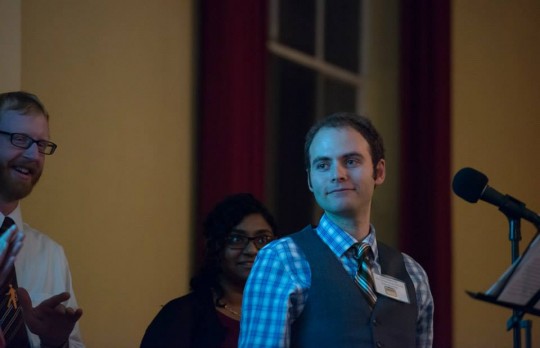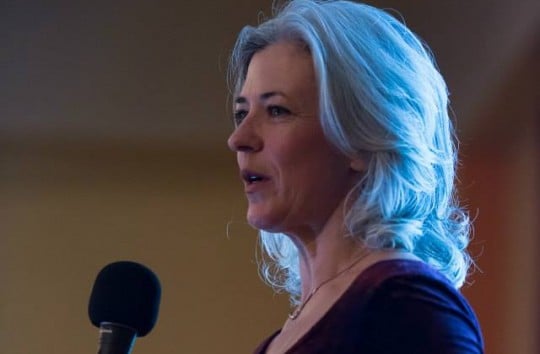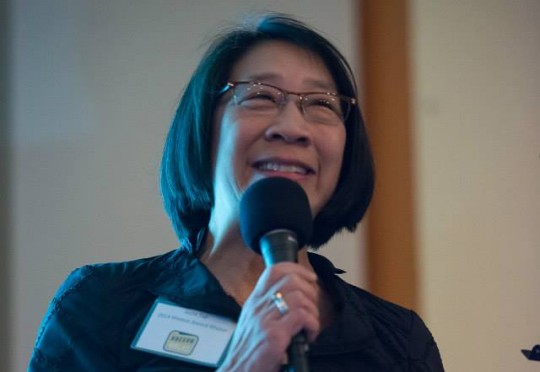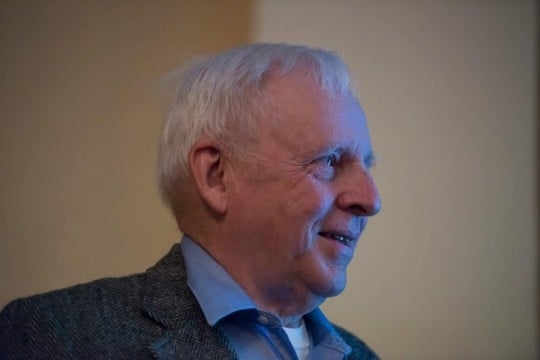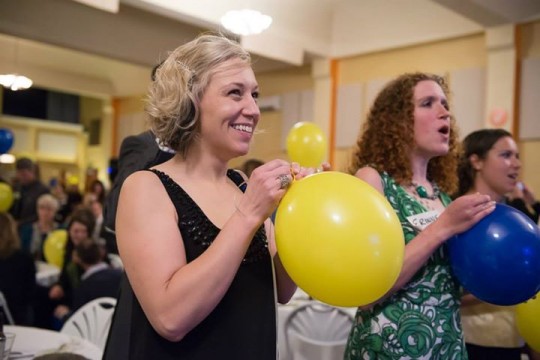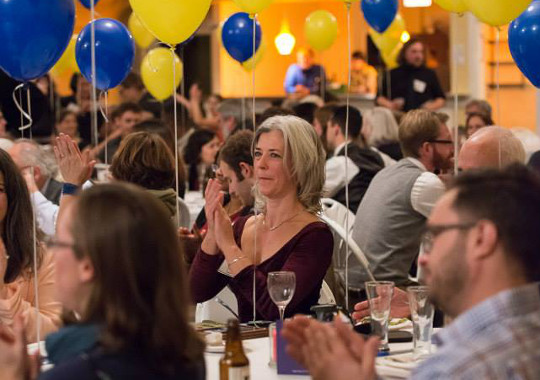
(Photos: Nina Johnson for Oregon Walks)
After a significant grant victory that’ll see the group partnering with biking advocates to advance street safety plans across the state, Oregon’s largest walking advocacy group had plenty to celebrate Saturday.
As it heads into the first year with a new executive director, Oregon Walks toasted its supporters, members and other advocates for ambling at the group’s annual Weston Awards.
“With your support, we are going to bring Vision Zero to Portland,” board President Aaron Brown told the crowd of about 200, formally announcing a $10,000 joint grant from Advocacy Advance to Oregon Walks and the Bicycle Transportation Alliance to “build a broad coalition demanding a Vision Zero approach to transportation planning, policy, and funding to all levels of Oregon government.”
The two local advocacy groups have made Vision Zero — the principle that preventing death should be the first priority of transportation policy — big parts of their message in recent years. They were among three winners out of 78 applications for “Big Ideas” grants from the national Advocacy Advance program.
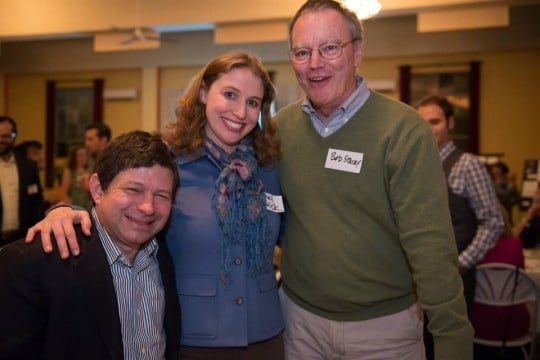
Among the attendees Sunday were Metro councilors Carlotta Colette, Kathryn Harrington and Bob Stacey; Portland Transportation Commissioner Steve Novick and Portland Transportation Director Leah Treat, as well as various other local and regional staff and elected officials.
The highlight of Saturday’s program was probably the range of passionate speeches from winners of the Weston Awards, which Oregon Walks offers to recognize work on behalf of better walking.
One award went to the volunteer group Better Block, which over the last year and a half has organized three temporary redesigns of public street space, most recently on West Third Avenue outside Voodoo Doughnut.
“We can demonstrate with our projects how to reinvigorate our historic commercial districts,” Better Block organizer Boris Kaganovich said at the microphone, flanked by a row of other volunteers. “It doesn’t cost a fortune to build an amazing street.”
Kaganovich asked people across Portland to reach out to the group with more ideas.
“Come to us — let’s build these projects,” he said. “Not in a 30-year plan, not in a 40-year plan. Let’s fix our city in three to four years.”
Another award went to Lake Strongheart McTighe, active transportation planner for Metro’s regional government, who this year completed the first-ever active transportation plan across the full Portland region.
“Walking, even more than language, is what makes us humans,” she said.
Advertisement
Award winner Anita Yap, founder of the Multicultural Collaborative consulting service, developer of the Cully Park Safe Access Project and a board member for the Asian Pacific American Network of Oregon and its Jade District project in the area near SE 82nd and Division, applauded the progress being made to retrofit auto-centric neighborhoods around the region.
“Look at the people we have at the table,” Yap added, alluding to the overwhelmingly white, English-speaking and well-to-do room of donors as well as to the broader political conversation in Portland. “Maybe we need a new table.”
Don Baack, founder of the DIY trailbuilding team Southwest Trails, received a lifetime achievement award for his efforts to build and maintain walking paths (along with maps and signs) on public rights-of-way through Southwest Portland, part of a sometimes uneasy truce with a city government that doesn’t always invite such projects.
In one legendary action, Baack left piles of gravel and stacks of buckets at either side of an unpaved trail through Himes Park, along with signs asking passers-by to fill a bucket and scatter the gravel as they walked. Two months later, the trail was finished.
Baack urged the room to contact city leaders in opposition to an overly “bureaucratic” approval process that he said is being considered for volunteer-built trails.
“That really kills everything on a citizen involvement basis,” Baack said. “When you have busy-work and bureaucracy, nobody wants to do anything.”
A final award winner, who couldn’t attend Saturday, was Kelly Clifton, a civil engineering professor at Portland State University. Emcee for the evening was Brian Benson, author of the bike-touring memoir Going Somewhere.
The event closed with an appeal for donations to the organization, which raised a total of $17,910 thanks in part to leading donations from pedestrian- and bike-oriented law firm Swanson, Thomas, Coon and Newton and car2go Portland.
After helium balloons had been distributed to donors, Upstream Public Health transportation policy manager Heidi Guenin took the stage with Brown, untied the knots of two balloons, and the two led the room (or at least some of it) in a high-pitched verse of the Proclaimers hit “I’m Gonna Be (500 Miles).”
“That was not planned,” she said later.
You can see Oregon Walks’ other photos from the event on their Facebook page.
Disclosure: I volunteered to help set up for the Westons and I donate some personal money to Oregon Walks, as I do to the Bicycle Transportation Alliance.
Correction 11/25: An earlier version of this post incorrectly summarized Southwest Trails’ relationship with the city of Portland.

